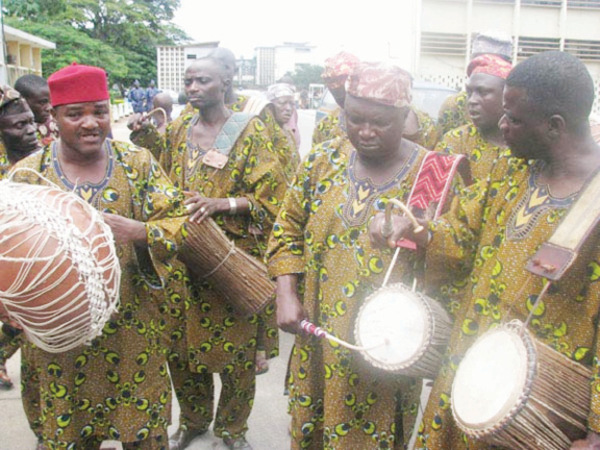
Every morning, Wasiu Aromashodun and business partner Emanuel Afolabi arrive at their recording studios in Nigeria’s sprawling economic capital, Lagos, south-west Nigeria, where they spend hours listening to English dialogues on international films and translating them into the local Yoruba language.
With the help of a technician, who also doubles up as voice-over artist, they record the translations using an ageing computer and a video camera microphone.
At the end of the day, a dialogue track in Yoruba is recorded, on a disc, to produce a master DVD copy. Aromashodun says that the he sells the masters to pirating syndicates on the outskirts of Lagos for about $200 [N30, 000].
The team translates about three films every month.
Aromashodun, who heads the production unit, said that after he sells the master copy of his Yoruba movie to the recording merchants, he does not have any control over the numbers of copies produced for the market.
In Nigeria, film and music piracy is a multi-million dollar business by powerful syndicates which have made it almost impossible for any creative work to maintain a copyright.
Aromashodun said that as long as he is able to make a bit of money with this business, he does not concern himself with what the buyers does with his master copies.
He added that he saves on the production costs by hiring his friends to be the voice-over artists. Most of them are unemployed and eager to take any work he can offer them.
“My cast is not hard for me to get, because I have some colleagues in my area, and I explain to them what to do and they will bear with me and we do it together,” said Aromashodun.
Afolabi, Aromashodun’s business partner says he enjoys the work.
“Normally we don’t make a lot of money, but thank God the little we get from it we can manage ourselves with,” said Afolabi.
Afolabi says that unemployment pushed them into the business, and that he saw nothing wrong with it since much of the creative work on the Nigerian market is pirated.
The most popular films on the market include several action movies starring Jackie Chan and Jet Lee. Other favourites include Rambo, starring Sylvester Stallone and many more. They are easier to translate, said Afolabi, because they are action based.
Aromashodun said they often spice up translations by adding familiar names of locations and people in Yoruba speaking areas of Nigeria in the films.
Gbolahan Swaries is an ardent fan of the Yoruba translated movie releases; he always buys a copy.
“The translation is making the film to be interesting, one can easily understand most of those actions, unlike when they speak in English,” said Swaries.
A DVD copy of the translated films costs less than $1 [N150] but free viewing is also available at outlets where the films are sold.



















